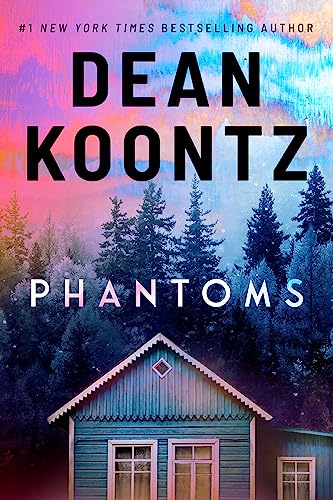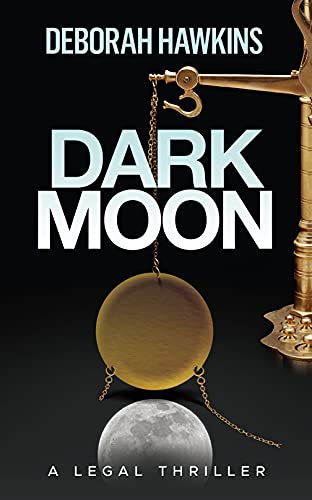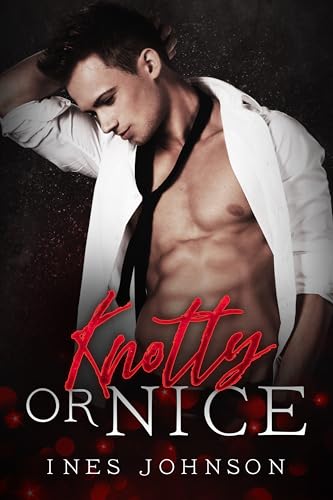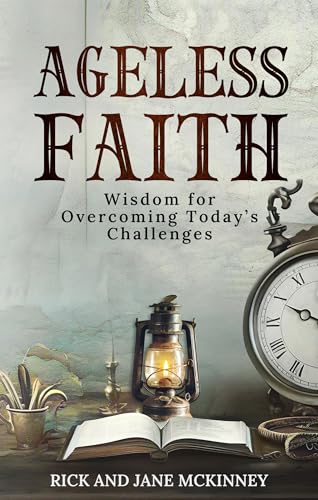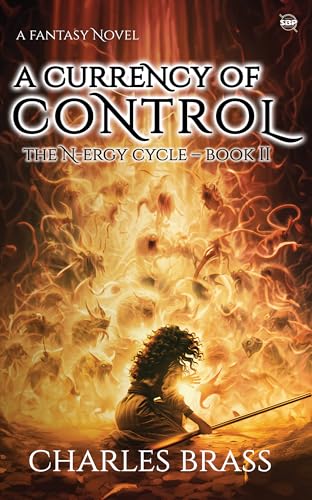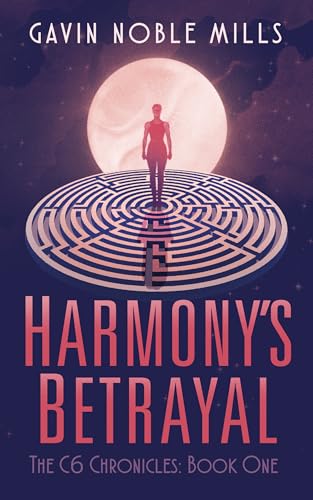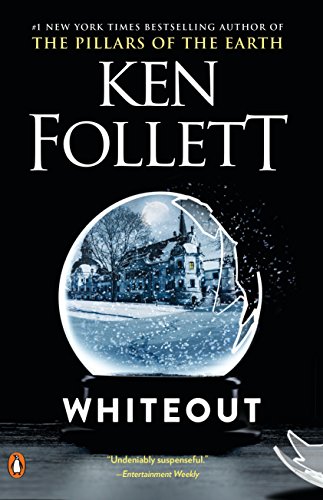Home is where the heart is…
From the award-winning and bestselling Kathleen Shoop comes this poignant, sexy and sweet novella set in 1969 North Carolina. Can two hurt souls — one wounded by war, the other by love — overcome their past enough to trust, and maybe even love, each other?
Just out! Be among the first to discover this charming romance for only 99 cents!
Home Again (The Endless Love Series)
by Kathleen Shoop
A novella set in 1969 on the shores of the Albemarle Sound in North Carolina.
April Harrington has fond memories of summers at her family home, Bliss. After her fairytale wedding disintegrates, it becomes her refuge–the one place where she can attempt to pull the unraveling threads of her life back together. Unbeknownst to April, the stately house has been neglected in recent years. The once-sturdy roof is leaking in a few dozen places, and the wharf is rotting. Nothing is the same as she remembers. Nothing except for Hale, a Viet Nam pilot who is haunted by a dreadful secret, and who is also her brother’s best friend, a brother killed in the conflict that is tearing the country apart.
In Hale’s presence, April finds familiarity and solace. They share grief for a lost loved one, and from the comfort of Hale’s arms, passion blooms. Yet, April’s future is unresolved. Her wealthy, arrogant almost-bridegroom wants her back and the ghosts of Viet Nam are whispering to Hale. Can they find new love in an old treasured home, the kind that lasts forever?
Home Again
by Kathleen Shoop
ONE
Autumn, 1969
APRIL HARRINGTON FINALLY arrived. Nine hours, straight through. After everything that had happened, she was simply drawn there. She swallowed hard—her raw throat ached as she stared in the direction of her brother, Andrew’s, memorial site. She missed him so much that she hadn’t been able to return since the service. Nothing had been the same since he died in Vietnam.
She stood where the cypress trees bowed to one another, forming a lace canopy of foliage that led the way to the dock. Her mind worked like a camera, snapping shots into neat frames that she filed away in mental drawers. Without trying, she compared all that she saw in present time with all that she recalled about Albemarle Sound. The call of the osprey that nested above the water drew April’s attention upward. What had she done to her life?
She looked down at her French silk wedding dress. She whisked her hands over the fabric, not believing she’d driven straight from New York in full bridal attire. She pulled her veil from her hair, peering at the fine creation that an elderly woman, with her bent, bulbous fingers, had lovingly fashioned for April’s special day.
The great blue herons screeched, their throaty voices as familiar as her breath. The toads, woodpeckers, hawks, and wolves—they set the rhythms of Bliss—the home where her family had spent every summer of her life before she left for college. She was sure she’d made the right decision to abandon Mason at the altar, but sharp guilt that she’d also left her parents at the wedding stabbed at her. She knew her parents would understand her not marrying Mason in the end, but they would not approve of her fleeing the scene.
She had worked so hard at Columbia University. A journalism graduate, she’d found her camera was her favorite way to observe the world, to tell a story. All that work—the elation she’d experienced when she crafted the perfect photo essay or framed the perfect shot, revealing someone’s soul in a single image—had been so fulfilling.
Yet she’d driven away from all of that and more. And standing there, April knew the deep regret of failure was dwarfed by what she’d seen in the photos from Woodstock, what she’d learned about life since Andrew died.
The hollow tone of wood thudding against wood made April head down the dock. The rowboat that had been carved 60 years before, shaped from one of the biggest cypress trees on the property, bobbed at the end of the dock. What would it be doing out of storage this late in the year?
She looked around as though there’d be someone there to answer her thoughts. A stiff wind dropped in and forced the waves to stand in sharp rows like soldiers marching toward the dock, bullying the boat. The gusts pressed April’s dress to her thighs, making it hard to walk. She raised her hand, the veil flapping in the wind. She opened her hand and the veil swirled around her fingertips, and then soared away.
At the end of the dock, she tried to squat, but the dress was too tight. Dammit. The dock creaked beneath her. She reached behind her and worked the buttons. It had been the one concession she’d made to her future mother-in-law; she’d had exquisite antique buttons sewn onto her otherwise decoration-free dress. She’d never imagined she’d be trying to wiggle out of the sheath on her own.
The woodpeckers and crickets performed as April reached up, then down her back to get at the last of the buttons. A wave tossed the rowboat upward, smacking it against the dock again. She took a deep breath and pulled at the dress, scattering buttons around her feet. A fresh wind broke over the mooring and blew the buttons in every direction, dropping them into the water below.
Another crash of the rowboat, and April refocused. She shimmied out of the dress then bent over and yanked the rope that tethered the boat.
The wind dropped away, bringing an eerie stillness that draped the water like a blanket. The boards creaked again. She froze. Her right foot pushed through the wharf. The dock couldn’t be breaking. Her father would never let that happen.
She pulled her foot out of the cavity and resumed pulling the rope. The creaking wood escalated into a whine, then a groan, and before she could react, the end of the dock collapsed, dropping April into the water.
It stung her skin. Its coldness made her feel as though her lungs were solid, unable to allow air in or out. She kicked hard; pulling toward the top, telling herself to be calm, a little chilly water wouldn’t hurt.
As her head broke the surface, the stiff waves pushed her up, throwing her nearly out of the water. She could see the boat was still roped to the piling—it was safer than her.
The sprays fell away as fast as they rose, and she plunged under water, brushing by a submerged tree stump. The punch of the severed cypress on her ribs almost forced her to inhale under water. She willed herself to ignore the pain and swim for the top again. She broke the surface and gasped as she stroked, head out of the water, toward the remaining part of the dock. A figure on the dock startled her. For a second she thought she was hallucinating—a man was there, kicking off his shoes and pulling his shirt over his head.
She waved and yelled before going under again. She struggled to stay above the rough water and fell back under as she felt hands around her. The man grabbed her waist and set her on his hip while he used his free arm to sidestroke toward the narrow beach.
He kicked hard, bumping her body up and down. Eyes squeezed shut, she panted and coughed up water. Once on shore, he threw her over his shoulder and headed to the veranda of the great summer home, where he settled her on the wooden floor. Lying there, her breath began to calm and the dizziness released her. She squinted at the man who was now lifting one of her arms, then the other, then one leg at a time, asking if this hurt or that.
It was him. She couldn’t believe it.
“Hale,” she said. Hale Abercrombie.
He raised his gaze from her leg.
They locked eyes. Those indigo eyes.
“Hi there.”
How long had it been since she’d seen those eyes looking back at her?
He flinched and rubbed his shoulder.
Her teeth chattered. “I’m sorry.”
“It’s nothing,” he said.
April slowly pushed herself to a sitting position. The movements made her inhale sharp and loud. She felt awful to have put him through such trouble. He had scrapes across his broad chest where she must have scratched him. She touched one of his wounds.
He pulled back. “Just a branch. Got a little too close to the tree cemetery.” Hale took her hand and turned it back and forth. His muscular arms tensed and relaxed as he moved. “Does this hurt?”
She drew her hand back and rubbed her arms to stave off the chills. “No, I’m fine.”
“You sure?” he said.
She nodded and pulled her knees up to her chest. This move caused her to groan. She covered the spot where it hurt with her hands.
He put his hand over hers. “Lie back,” he said.
She hesitated as she considered the fact she was dressed in only wet underpants and bra. Then flashes of their childhood came to mind—they’d spent countless summers running the grounds in nothing but bathing suits. He was Hale, her brother’s best friend, not some stranger.
He shifted his six feet two inches to get a closer look. His wavy, golden hair was cut close to his scalp, as any officer’s hair would be. He pressed her ribcage where the red skin was already blackening. She winced.
“Just a bruise,” she said.
“That’s not.”
She lifted her head to see what he was pointing at now. “Appendectomy.”
His eyes widened.
“A few months old.”
He ran his finger down the center of the crosshatched stitching. She pushed it away.
His gaze slid up to meet hers. His expression bore concern. He’d always been serious, but this concern was a darker, more troubled kind of somber. That made sense when she considered what he’d been through with her brother.
“I…” he said.
April felt connected to Hale—she always had. But this was an entirely new sensation—so strong and confusing to her that she had to order herself to stop feeling it. “It’s fine, Hale. Just a bruise.”
She struggled to sit up again. He took her hands and pulled.
“I didn’t mean to touch you. Your scar.” He ran his hand through his hair but wouldn’t look at her.
“You’ve touched me a million times, right?”
He nodded. “A long time ago.”
Indeed, today’s touches had evoked far different feelings than the ones that had marked their childhood.
“You’re okay? Really?” he said.
“Fine. Fuddy-Duddy,” they both said at the same time.
He met her smile with his, making her stomach quiver.
“If you’re okay, I’ll get your suitcase,” he said. “I’m on leave for a month, and I came to fix the kitchen sink. I figured since I was here, I should…well, I ought to check over the place. I took the rowboat out earlier. When the winds kicked up I came back to bring in the boat.” He narrowed his eyes at her. “Your parents—they didn’t say you were coming.”
She looked away. She couldn’t start explaining all that had happened.
“Well, your suitcase.” He started down the steps toward her car.
She scrambled to her feet, grimacing, following him.
She looked down at her barely clad body and stopped. “No luggage.” Heat rose in her cheeks. “Just the dress, my purse, my camera.”
“That white thing on the dock is your dress?”
April nodded. She should at least try to recover some of the precious buttons, if possible. He took her hand. His fingers squeezed hers, sending a chill up her spine. She looked away from him, embarrassed at the excitement that swept through her.
“It’s gone,” he said.
April raised her eyebrows. She felt dizzy.
“The wind took it. Right over the sound.” He whistled and pushed his hand through the air. “Took flight like, well, remember that big old heron we used to call Matilda?”
April smiled. Their familiarity, the tales, the troubles—all of it made her feel as though they’d crossed paths just the day before.
A fresh wind whipped the trees. April and Hale looked to the sky.
Hale’s face grew troubled. “Storm’s coming,” He squeezed her hand once more, then dropped it. She clutched her hand to her body, feeling the spot where the engagement ring no longer encircled her finger.
“I’ll grab my stuff and get the rowboat.” Hale pushed his thumb in the direction of the water.
She looked at his wet jeans, the way they molded to his thick legs. Him saving her was really no big deal. Hale had lived his entire life saving others quietly, so circumspect and aware of what people needed. So old-fashioned, she’d always thought when she was younger. Not much fun, she’d always teased him. Now she just felt grateful—fortunate that Hale had been there to comfort Andrew as he had died, and glad he happened along for her sake a few minutes before.
She couldn’t help comparing Hale to Mason. Mason and his family were philanthropists, but when they sprung into life-saving action, it was with a checkbook, not their bare hands. Who would have jumped in after her if Mason or his parents saw her struggling in the water? They wouldn’t let her drown. They’d send the butler, Henri, but of course. Hale’s family, year-rounders at the sound, had nothing in the way of money, but they were strong, steady, and loyal.
“Go in. Get warm,” Hale said.
She nodded. No clothes, no family, no husband, no job. She needed more than to simply get warm.
“I’ll come back tomorrow to fix the dock and the tile in the blue bathroom,” Hale said.
“Thank you,” she said. “For Andrew. For everything.” She’d thanked him before for having tried so hard to save Andrew, but for some reason, she felt the need to say it again.
He nodded, and then headed toward the sound, humble as ever. April made it as far as the front door and stopped. She couldn’t believe what she saw. Like an old man’s mouth, the pointing between the bricks that faced the grand mansion was gapped and jagged, leaving the house vulnerable to wind and water. She slid her finger into a hole between the red brick and released a shard of aged plaster. She turned it back and forth as though it could explain how or why her father would have neglected to maintain the house.
The wood trim around the door was pitted, the paint lifting off, curling in sections. She examined the sturdy oak door. It seemed to be the only part of the house that wasn’t falling in or marred with age. She swept her finger along the carvings that depicted the nine rivers that fed the Albemarle, still amazed at the gorgeous work a family ancestor had done.
April sighed. She had to be honest about what she was seeing—utter neglect. Regret coursed through her. In living the silver-spoon life in New York, she’d ignored her parents, their pain, what that meant for this house. She hadn’t meant to be blind to what her family needed from her. She should have made sure the house was being kept up—it had been in their family for two centuries, after all.
She shook her head. She knew the cost of the wedding had been high, that her father had had some rough times with some real estate deals over the years, but she never imagined those things meant her parents might let the house suffer. Perhaps they’d just been focused on the inside of the home and had let the outside go until…until what? She didn’t know. The guilt she felt right then twisted at her soul. What had she done?
She turned the knob, but it wouldn’t budge. She checked behind the planter for the spare key. Nothing. She swallowed a sob, and then turned her back on the door. Hale must have the key.
She turned and saw him coming with the boat over his head.
She ran toward him as quickly as she could with the sore ribs. Thunder cracked, making her move faster.
He stopped and nearly buckled under the weight of his haul.
“I can get the bow,” she said.
“I have it,” he said through clenched teeth.
She reached to lift one end, but all she could manage was to blanch at the pain that emanated from her ribs and follow behind like a little kid.
When they reached the veranda, Hale stopped. “We’ll stow it in the crawl space for the night. I have to get going.”
He appeared irritated. He flipped the boat and set it gently down on its bottom. Together, they gripped it, shoulder to shoulder, pushed it under the veranda and reset the lattice that served as a door for the space.
“Oh. The key,” April said.
Hale appeared confused. She ignored his unasked question. She wasn’t ready to explain her flight from the altar to anyone, least of all old-fashioned, always-do-the-right-thing Hale.
He reached into his pocket, and then pressed the key into April’s palm.
The thunder rumbled. She hoped she wouldn’t lose electricity.
Hale looked to the sky again, then began to move quickly, fussing with the lattice again. “Shouldn’t be too stuffy inside the house. I had the windows open earlier.”
She started toward the front steps.
“I’ll let your dad know he doesn’t need me here anymore.”
“No!” April turned back to make sure he got the message.
He snapped his attention to her, eyes wide, before his expression turned to relief.
“Don’t do that.” She straightened and crossed her arms over her chest.
She needed time to sit with her decision, to be strong and decisive when she spoke to her parents next. She needed to reassure them she could handle her life alone.
Hale raised his hands in surrender. “Okay, sure.” He cleared his throat. “Careful there. The fourth stair is disintegrating. I’ll fix that, too.” He started up the stairs to show her the rotting board.
Thunder rumbled and he looked into the sky again so April couldn’t hear everything he said until, “Don’t suppose an accomplished Ivy League lady like you has much time for carpentry.”
April forced a laugh. Hale drew away. Her hands shook. Ivy League lady. Images of Woodstock, of the wedding, of the blurred faces she saw as she ran down the aisle and out the door snapped through her mind as though she were photographing the scene.
“Hey, what’s the matter?” Hale reached out but didn’t touch her.
April shook her head.
“You’re crying.”
She touched her cheek and studied the tiny puddle of tears that she collected on her fingertips.
She felt Hale’s gaze slip down her body, reminding her she was nearly nude.
April covered her chest with one arm. She needed to get into the house so she could fall apart in private. The thunder interrupted their silence, and he abruptly started down the steps.
When he reached the bottom stair, he turned back and poked at something. April moved closer to see what he was doing. Inside a tiny circle of pebbles was a furry, black caterpillar. Hale plucked some grass and sprinkled it into the miniature fortress.
April squinted at him.
He shrugged. “Little guy just needs some shelter. ’Til the storm passes.”
She looked into the mottled sky. “I guess so,” she said, not wanting to embarrass him.
He shrugged. “I’m really glad to see you.”
April nodded. She was comforted, relieved that someone on that day would be happy to see her. The air sizzled with the coming storm. “Come in, stay for tea.” But as she spoke those words, a clap of thunder broke, and he didn’t hear.
He hopped into his Chevy and drove away, his truck winding around the house and disappearing. April pushed the key into the lock and turned it. She opened the door and faced the great marble staircase that rose up from the worn, but still stunning, cypress floors. You’ll be fine alone, she repeated to herself.
The echo of silence between the thunderclaps embraced her. She wondered if it was going to be too quiet at Bliss, if she should have just slipped into a women’s hotel in Manhattan and gotten lost in the crowd. No. She squared her shoulders and lifted her chin. She would go on with her life, and she would do so in memory of Andrew and how right he’d been about everything.
She started toward the kitchen and passed the mirror in the hall, glancing at herself. Some of her golden hair was matted against her face and the rest was plopped on top of her head like a loaf of bread, still held in place with pins and elastics. Strands sprung out all around her scalp from where she’d pulled the veil off. Mascara ringed her eyes like the great owls that serenaded her summer sleeps.
No wonder Hale had run away as soon as he knew April was fine. She considered his Ivy League crack. She knew she’d hear that, coming back to Harrington. But she hadn’t expected it from Hale. She hadn’t expected him to be on leave at all.
April took her attention from her reflection to the empty space beside the mirror. She pinched one of the naked picture hooks between her fingers, twisted, then pulled it out. She turned slowly, surveying the fifteen-foot tall walls.
Her mouth fell open. Every single one of them was gone. Each of her mother’s treasured Albemarle Sound paintings had been removed. Only the silver picture hooks remained, scattered, winking at her in the soft foyer light. Where were they? Maybe Hale knew. She touched her belly where his fingers had traced her scar.
She gasped at the thought of his hands on her, the way he cared for her. She realized the sensation sparked by his touch—this quiet luring—was not new, but now, as a woman, she recognized the sentience for what it was.
There was and had always been a special bond between them even if she’d forgotten it was there for years. She wrapped her arms around her middle. Of course they were connected. They’d shared summers, her brother’s life and, most importantly, his death.
TWO
HALE DROVE THE Chevy back toward the road but had to stop. He wiped his brow with the back of his hand, then strangled the steering wheel to make his hands stop shaking. His heart pounded so hard, he was sure he could track the rushing blood through his body from start to finish. He pushed his head back against the seat and clenched his jaw until the panic stopped.
The thunder. He hadn’t expected it to still bother him so much, not after two years. It had been a while since it had had this affect on him. He willed the terror to subside. It must have been finding April in the water, needing help. Yes, she was fine, but it had scared him. All it took was an unexpected hand on the shoulder, a door slamming, a clap of thunder… Any small, startling thing could trigger fright so vivid that sometimes, he threw up.
Dear God, please make it stop, make it stop. He pressed his feet into the floor of the truck, told himself he was grounded, he was safe. He re-gripped the wheel and said aloud, “You’re in the truck. You’re home.”
Gradually, his heart decelerated, his breath calmed, and the heat that scorched him from the inside out retreated. He could do this. He was okay.
He didn’t know how much time had passed before he opened his eyes. He looked at the back of April’s house. There were lights on upstairs. Had April seen him sitting there? He imagined her calling her dad to tell him she had arrived. He gripped his knee. The lie had been out of his mouth before he’d even consciously formed the thought. He had not been invited to take care of April’s family home.
No. He was on a month’s leave. A chance to get his head straight, his commander had ordered. So he’d come to the only place he might be able to do that…Bliss. The place he’d always found peace and plenty. Hale’s father had died when he was a baby, leaving his mother to cobble a living by watching over all the homes on the sound when the summer season was over. April’s family had become his in too many ways for him to parse. But he never thought he’d have to face April before he was ready to tell her the whole story.
It hadn’t mattered that he was awarded a Silver Star and a Purple Heart. He’d buried the medals inside the sweeping skirt of the giant cypress tree outside Bliss, near Andrew’s memorial. The idea that someone would award him for valor when his bravery hadn’t resulted in saving Andrew, well, Hale knew an empty gesture when he saw it, and he would never forgive himself for being the one who was alive.
He couldn’t sleep at night. Nearly every hour, he shot awake. The sharp screech of the missile hitting the plane rang through his head as though he was still in the rear of the F-14. He would wake standing in the middle of the room, or on the bed, feeling as though he’d just punched out of the plane. There amidst perfect safety he experienced the sensation of the entire seat rocketing out of the plane, his body shuddering as it had the very day it had happened. And as he came back to consciousness, he heard Andrew’s easy tone calmly narrating how he’d maneuvered them away from the missiles. That was what had happened every time, but once. Just once.
The part that affected him most was what happened after punching out. The ground fire. He couldn’t bear to envision it, but couldn’t shake it from his very being. The divot in his leg was nothing compared to the grooves that had been forever worked into his brain, his skin, his soul. Those memories—the missile, the odor of the fire—were creased into his core, which held onto that day, grasped onto the experience, making Hale sure that if he managed to pass a day without Andrew entering into his mind, every cell in his body would still recall his loss.
In fact, the events of that day had left him with the only thing that let them know he was still alive—pain. A fly buzzed near Hale’s ear. He swiped his hand through the air, capturing the insect. He opened his fingers and the fly flipped over on his palm and staggered back into the air, escaping to the back of the truck.
Hale put his hand over his chest. His pulse was even. He drew a deep breath. He would put his mind straight as he’d been ordered to do. He would. He put the truck in gear and started home. Glancing in his rearview mirror, a lightning strike made him jump as it lit the air and revealed the form of April at Andrew’s bedroom window.
His nerves leapt as he considered the attraction toward her sweeping through his body. He pushed away his misplaced feelings. No, April was just his best friend’s sister, and there was never any good to come from something like that. Not when she’d probably been left at the altar, and not when Hale was the reason her brother was dead.
In the kitchen, April threaded her fingers through the metal cabinet handle. She tugged and the hinges pulled right over the screws as though they were made of gelatin instead of metal. Her sadness deepened. What had been going on in this house? Had she spent too many spring breaks and summer vacations in Cayman Island resorts with the Franklins? Had Bliss always been run-down and she just never noticed?
She set the door aside and chugged down several glasses of water. She rubbed her chilled arms and went to find clothes. In her bedroom, she wiggled her toes on the worn Oriental rug. She jiggled the top dresser drawer then tilted it at just the right angle that would allow it to slide out. She dug between half-a-decade old undergarments. Girdles, for goodness sake. She’d sworn those off within the first five minutes of being in New York City.
She tried the next drawer. She held up some plain t-shirts. She was tall and angular and for the first time, seeing the small t-shirts as her only clothing option, she was grateful for her lean lines. Her closet was empty, and she needed pants.
She went to Andrew’s room. The light bulb was burned out, so she used the hall light to illuminate her quest. She excavated his drawers and found jeans she could cut into shorts. She went to the closet. Thunder continued to crash and rumble, bringing bright flashes of lightning with it. She fished through the closet and found an old tie of Andrew’s to use for a belt. She pulled a shirt from the shelf.
She held it to her nose. The aftershave smell she associated with her brother should have been long gone, but in the folds of the fabric, she swore there was a hint of him.
She buried her face in the shirt and sobbed. Her Andrew, her wise, fun-loving brother, had taught her so much about life. But it was his death that had educated her the most, that had helped make it so clear that choosing to marry Mason would mean a lifetime of awful.
She told herself not to cry that leaving him had been right, even if in the short run, it had felt so terrifically wrong. She gathered her new apparel, plucking Andrew’s old Converse sneakers off the closet floor. They would work until she figured out how she was going to reassemble her wardrobe, rework her entire life.
She sat on the edge of the tub while the water ran. She reached for the glass vial with the cut-glass stopper and opened it, inhaling her mother’s homemade orange oil. She turned it into the faucet letting the water carry the emollient into the bath.
Tucked into the water, she poked at the shiny islands of oil that floated on the surface. She patted at the bruise that formed where she’d hit the stump, then traced the appendectomy scar, thinking of Hale’s caring expression as he had stared at it.
This reminded her of the way Mason had gaped at the incision, turning grey, retching and nearly passing out, declining to assist her ever again.
It was true—the stitches had been relatively new. But with years of snapshots flipping through April’s mind, she realized how often he chose to turn away from her needs rather than step toward them.
She reclined further into the tub, her long hair floating like spider legs around her. The warm water cushioned her sore body. She would not let the loss of her almost-marriage feel like a death. Andrew’s absence and the experiences of soldiers who came home injured or simply forgotten were tragic. But April’s life, her loss? She shrugged at the thought. That was nothing.
She hadn’t felt so free in ages. Probably since the summer she’d left for college, when all was hopeful and everything she could imagine was possible. It had been at least that long.
… Continued…
Download the entire book now to continue reading on Kindle!
(The Endless Love Series)
by Kathleen Shoop
Special new release price:
Just 99 cents!

